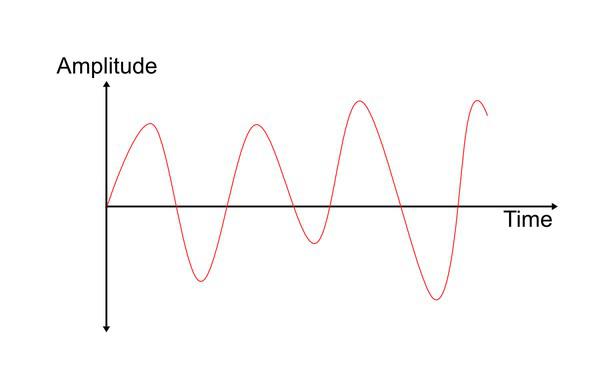Difference Between Digital And Analog System
Last Updated : 21 Aug, 2024
Analog and digital signals are used to transmit information (such as any audio or video), usually through electric signals. In digital technology, the translation of information is into binary format (either 0 or 1) and information is translated into electric pulses of varying amplitude in analog technology.
What is a Digital System?
A digital system is one whose signal has a finite number of discrete values. So, the digital system works on digital signals and is limited to binary values 0 or 1. Digital systems are used to process information in digital form. The digital system has wide applications in digital instruments like calculators, computers, Telephones, etc.
 Digital Signal used in Digital System
Digital Signal used in Digital SystemFeatures of Digital Systems
- Uses Binary Code: Digital systems use binary code, which is a combination of zeros and ones, to represent information.
- Accuracy: Digital systems are more accurate than analog systems because the information is represented in a precise and consistent manner.
- Processing Speed: Digital systems are capable of processing large amounts of data quickly and accurately.
- Noise Immunity: Digital systems are immune to noise and interference, which means that the transmitted information is less likely to be corrupted.
What is Analog System?
Analog system is one that uses continous time signal or analog signal which is a sinusoidal waveform. Analog system transmits the output in their raw form reducing the time of translation. The amplitude of the signal varies continuously with the time. Analog signals are used to represent sound, temperature, light intensity etc.

Features of Analog Systems
- Uses Continuous Signals: Analog systems use continuous signals to represent information, such as electrical voltages or sound waves.
- Real-World Representation: Analog systems are better suited for representing real-world phenomena such as sound and light, which are continuous in nature.
- Smooth Transitions: Analog systems provide smooth and continuous transitions between different values, which can be important in certain applications such as music or video.
- Complexity: Analog systems can be more complex than digital systems due to the need for additional circuitry to process and transmit the signals.
Similarities Between Digital and Analog Systems
- Both can be used to process and transmit information.
- Both can be used in a variety of applications such as audio, video, and telecommunications.
- Both can be used in combination with each other to achieve certain goals, such as using digital signal processing to enhance analog signals.
- Both require some level of circuitry or hardware to function.
Difference Between Digital And Analog System
| | Analog System | Digital System |
|---|
| Signal | Analog signal represents physical measurements. | Digital signals are discrete and generated by digital modulation. |
| Waves | Sine Waves | Square Waves |
| Representation | Continuous range of values to represent information | Uses discrete values to represent information |
| Technology | Records waveforms as they are. | Samples analog waveforms into a limited set of numbers and then records them. |
| Data transmissions | Affected by noise during transmission and write/read cycle. | Noise-immune during transmission and write/read cycle. |
| Response to Noise | More likely to get affected | Less likely to get affected |
| Flexibility | Hardware is not flexible. | Hardware is flexible. |
| Bandwidth | Less bandwidth. | More bandwidth to carry out the same information |
| Memory | Stored data in the form of wave signal | Stored data in the form of binary bit |
| Power | Consumes large power | Consumes negligible power |
| Uses | Best suited for audio and video transmission. | Best suited for Computing and digital electronics. |
| Cost | Cost is low | Cost is high |
| Example | Human voice in air, analog electronic devices. | Computers, CDs, DVDs, |
Conclusion
Digital and analog systems differ in how they represent data, noise immunity, bandwidth requirements, complexity, and accuracy. While analog systems represent data using a continuous signal, digital systems represent data using discrete values. Digital systems are generally more immune to noise and more accurate than analog systems, but they also require more bandwidth and are more complex.